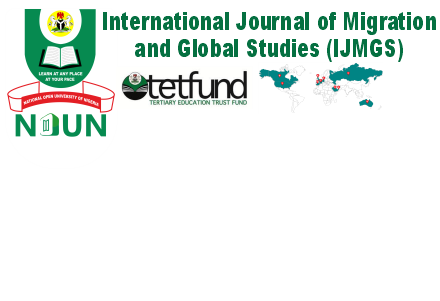Migration has characterized societies throughout history and as one of the defining features of the 21st century, has become an integral part of sustainable development contributing significantly to the socio-economic development of countries and improving the general wellbeing of international and internal migrants. Currently, over 251 million people making about 3.5 per cent of world’s population, live outside their areas of origin and there are a host of internal migrants living within their countries of origin. In 2016, migrants from developing countries remitted an estimated USD516 billion. Meanwhile, various conventions and protocols at UN, AU and ECOWAS created international obligations requiring member States including Nigeria to protect the rights of migrants. With a population of about 200 million, Nigeria by 2019 had about 1.3million international migrants abroad mainly in the formal sector contributing about US$25 billion annually (representing 6.1% of the GDP) to positively impact Nigeria’s economy. There is also a huge population of internal migrants mostly in the informal sector (which accounted for 65% of Nigeria’s 2017 GDP) who contribute significantly to the socio-economic development of the country. These migrants are great assets to Nigeria and therefore deserve to have their rights protected. The paper finds that despite the efforts of the government towards observance of international conventions and enforcement of regulations, there are prevalent breaches to the political, social, economic and cultural rights due to some legal gaps and inadequate political will to enforce certain rights. Violations of the rights of Nigerian migrants lead ultimately to injustice, undermining of human dignity, living standards and contribution to national development. The COVID-19 has further exacerbated these breaches, impacting economically, educationally and health wise, thereby worsening the plight of many migrants. Thus, it became imperative to x-ray the issues and challenges which militate against the protection of the rights of the migrants. Consequently, the paper recommends the enactment/domestication of the relevant laws and streamlining activities of the ministries, commissions and agencies involved in the management of migration. Other recommendations include compiling comprehensive disaggregated profile of migrants, developing robust social security scheme for migrants as well as the judiciary going digital whilst incorporating virtual Alternative Dispute
